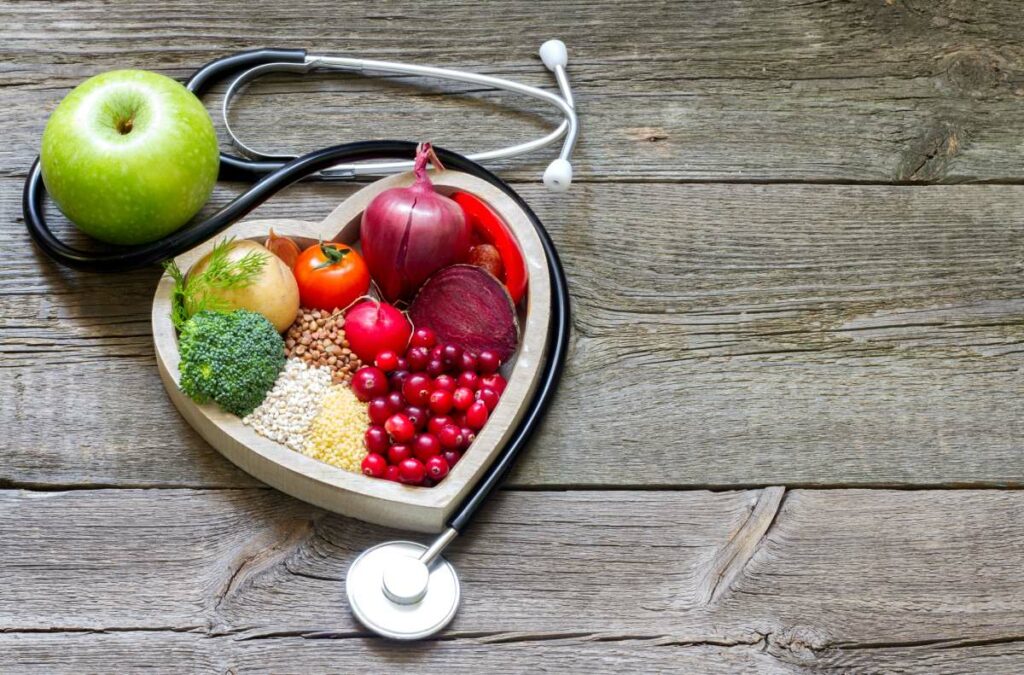The term “superfood” gets thrown around often, but what exactly is a superfood? A superfood is a nutrient-rich food that has been shown to have various health benefits. While many different foods could be considered superfoods, in this article we will focus on a few that are particularly beneficial for mental health.

1. Blueberries
Blueberries are bursting with antioxidants, which have been shown to protect cells from damage and may even help fight cancer. These little berries are also a good fiber source, promoting cardiovascular health. Antioxidants are also essential in protecting the body against free radicals, which have been known to play a role in developing mental disorders.
2. Salmon
Salmon is packed with omega-3 fatty acids, essential for maintaining heart health. Omega-3s have also been shown to reduce inflammation throughout the body, which can lead to a host of other health problems. Salmon is also a good protein source, essential for building and repairing tissues, and Omega-3’s can reduce anxiety symptoms.
3. Broccoli
Broccoli is rich in vitamins A, C, and E, fiber, and carotenoids. These nutrients boost the immune system, protect cells from damage, and fight inflammation. Broccoli is also a good source of calcium, which is essential for bone health. B Vitamins have been shown to reduce symptoms of depression as well.
4. Spinach
Spinach contains vitamins A, C, E, and K and magnesium, iron, calcium, potassium, and folate. These nutrients help improve vision, bone health, heart health, and cognitive function. Spinach is also a good fiber source, promoting digestive health.
5. Nuts
Nuts are an excellent source of protein, healthy fats, vitamins, minerals, and antioxidants. These nutrients work together to lower cholesterol levels, reduce inflammation, and support heart health. Certain nuts, such as walnuts, also contain omega-3 fatty acids.
6. Sweet Potatoes
Sweet potatoes are an excellent source of beta-carotene—an antioxidant that helps boost immunity and protect cells from damage—vitamin C (which also supports immunity), manganese (which is essential for bone health), and fiber (which promotes gastrointestinal health).
7. Garlic
Garlic is a good source of vitamins B6 and C, manganese, and selenium. These nutrients support the immune system, improve heart health, and protect cells from damage. Garlic is also a natural antibiotic, making it a good choice for preventing and treating infections. One way to get the most health benefits from garlic is to let it sit for 10 minutes after chopping or crushing it. This allows the formation of allicin—a compound with powerful medicinal properties.
8. Avocados
Avocados are an excellent source of healthy fats known as monounsaturated fatty acids—specifically oleic acid—which has been shown to support heart health by reducing cholesterol levels and inflammation. They’re also a good source of fiber—both soluble and insoluble—which promotes gastrointestinal health by keeping things moving along through your digestive system while also soaking up water and keeping you feeling full longer so that you don’t overeat later in the day.
9. Tomatoes
Tomatoes are packed with vitamins A & C—antioxidants that help boost immunity while protecting cells from damage caused by free radicals—as well as lycopene—an antioxidant that has been explicitly shown to promote heart health by reducing cholesterol levels and inflammation throughout the body. They’re also a good source of potassium (needed for proper nerve function) & fiber (again promoting gastrointestinal health).
10. Beets
Beets are an excellent source of vitamins C & B9—also known as folate or folic acid—as well as manganese & fiber. Folate is essential for pregnant women because it helps prevent congenital disabilities, while fiber helps keep things moving along in your digestive system. Manganese is necessary for energy production & blood sugar regulation, essential for maintaining optimum health & preventing chronic disease. Plus, beets contain nitrates, which can help improve blood flow & lower blood pressure. All of these nutrients work together to promote overall health & wellness.
11. Graviola
Graviola, also known as soursop, is a tropical fruit traditionally used to support mental health. The active compounds in Graviola, including Annonacin and Annonamine, have been shown to possess neuroprotective properties. In addition, Graviola leaves are rich in antioxidants and polyphenols, which can help to protect brain cells from damage.
Studies have also shown that Graviola can help to improve mood and reduce anxiety. While more research is needed to confirm these effects, the evidence suggests that Graviola is a powerful superfood supporting mental health.
12. Cacao
Cacao is a superfood that has recently gained popularity for its health benefits. The cacao tree beans are rich in antioxidants and flavonoids, which have been shown to support cognitive function and mental health. In one study, participants who consumed a daily dose of cacao for four weeks showed improvements in memory, attention, and task flexibility.
The beneficial effects of cacao on mental health may be due to its ability to improve blood flow and reduce inflammation. In addition, cacao contains compounds that can promote the production of serotonin and dopamine, which are essential for mood regulation. For these reasons, incorporating cacao into your diet is a simple way to support mental health.
How To Incorporate These Foods Into Your Diet
Now that you know which foods to eat for optimum health, you may wonder how to incorporate them into your diet. Here are some ideas. First, try to eat a variety of these foods every day. This will ensure you get all the nutrients you need for optimum health. Second, try to eat them as close to their natural state as possible. This means eating an apple instead of drinking apple juice or eating a raw carrot instead of drinking carrot juice.
Third, try to cook them in healthy ways—steaming or stir-frying, for example—rather than unhealthy ways—like frying them in oil. And fourth, make sure to eat them as part of a balanced diet that includes other healthy foods like whole grains, lean protein, and healthy fats.
Final Thoughts
These are just a few foods that can help boost your mental health. Incorporating them into your diet is an excellent way to keep your body healthy and strong. However, practicing other healthy habits, such as washing your hands regularly, getting enough sleep, and managing stress levels, is also essential. When it comes to boosting your mental health, every little bit helps.



